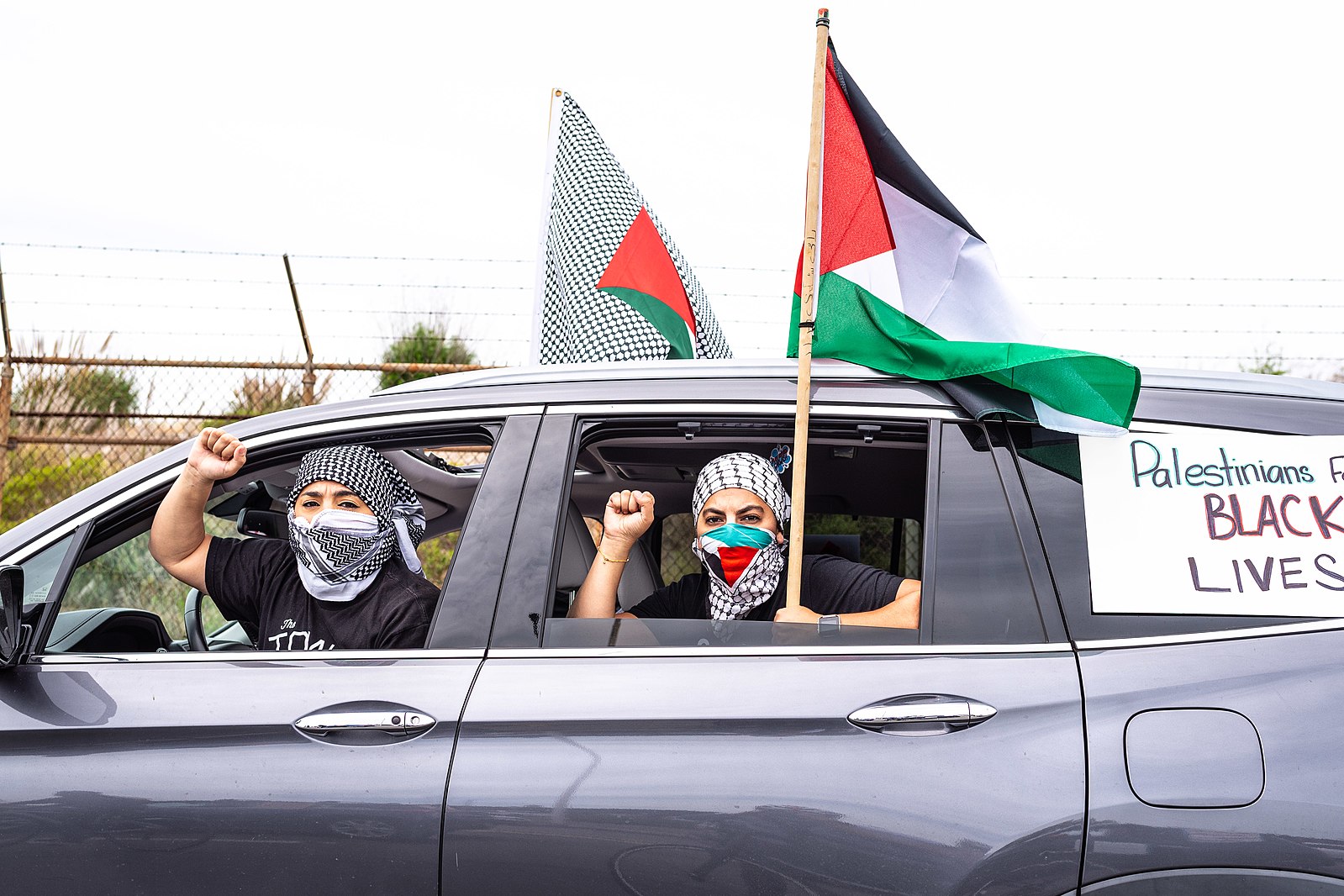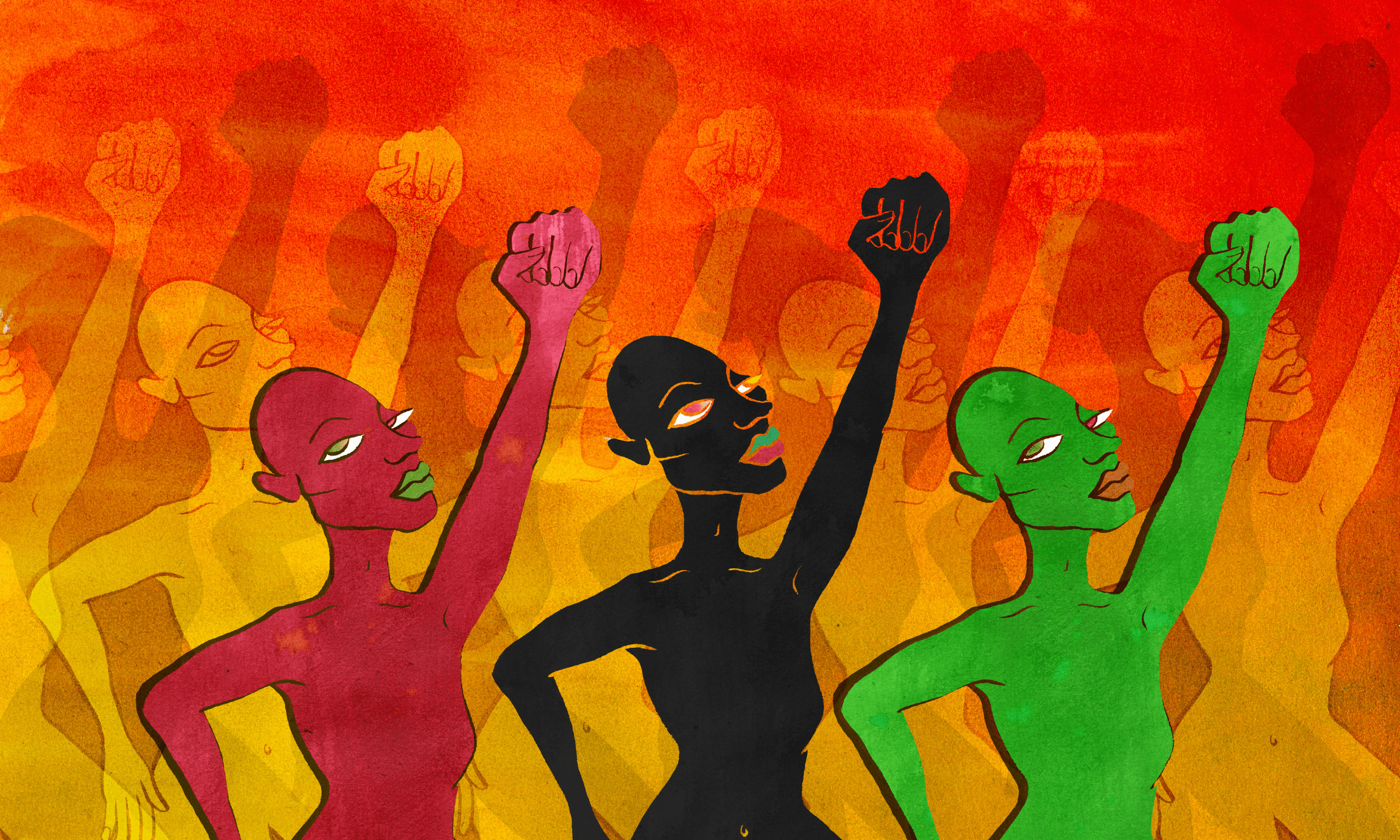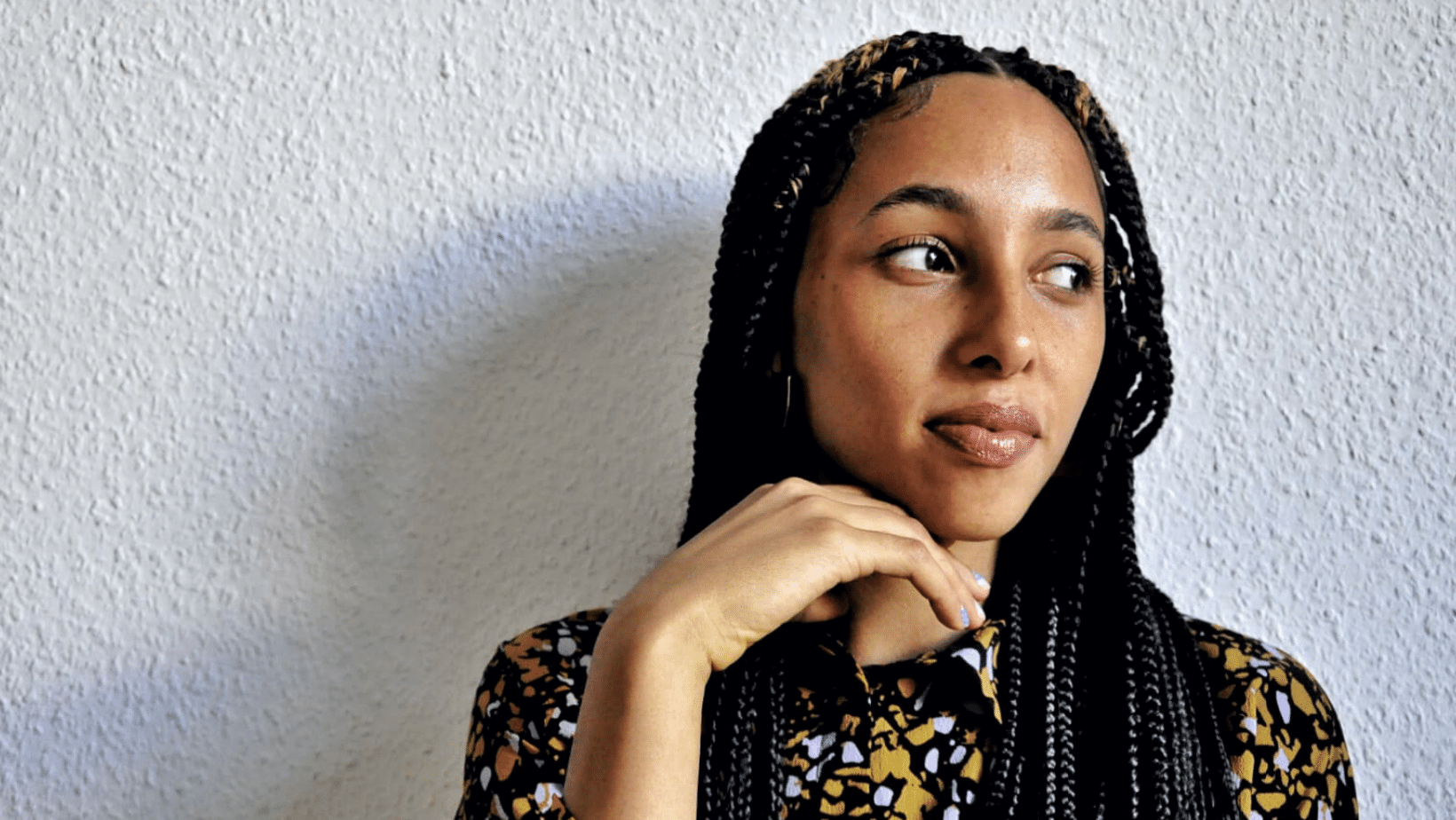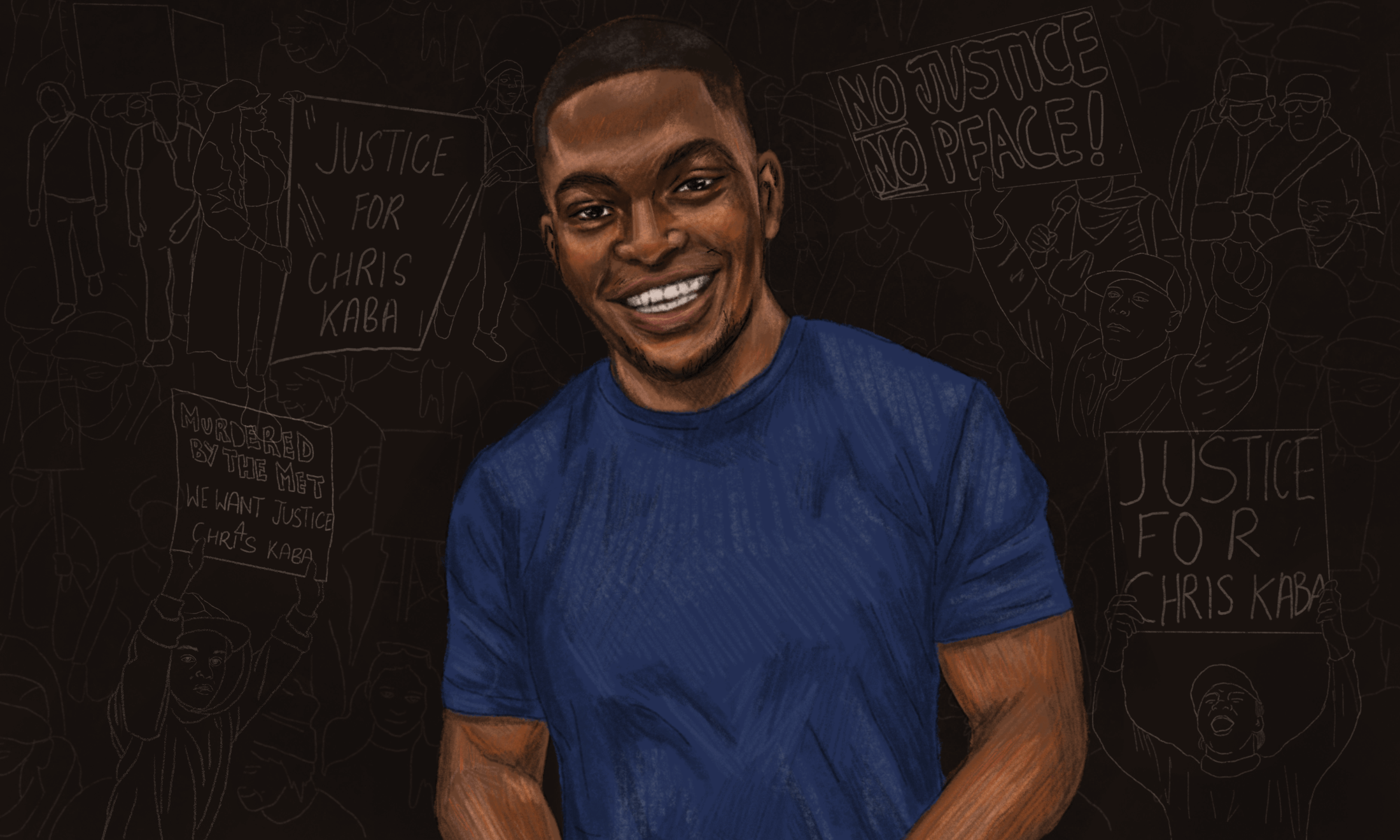
Illustration via Canva
What to do if you can’t protest on the streets for Black Lives Matter
Not everyone in the black community can physically gather, march or protest. But other forms of activism and self-care, especially during the coronavirus pandemic which has disproportionately affected black lives, are just as valid.
Melz
02 Jun 2020
Black communities across the world are rising up with revolutionary fervour. From the spark ignited in Minneapolis, we have seen a wave of deeply held pain and grief rush to the surface and express itself on the streets across the US, in London, Paris, Berlin, and beyond.
At the same time, many of us have lost count of the number of days we have been in isolation, starved of human contact and intimacy, so much so our own thoughts and what we consume through social media have become our closest friends. Black mortality has been brought to the centre of our collective attention and unlike the innumerable times this has happened within our lifetimes, we are faced with the predicament that expressing our rage and grief on the streets could exacerbate the disproportionate deaths from Covid-19 in the black community. Many of us feel at an impasse, aggrieved by the state of the world and the disregard for black lives, but conflicted. We know that taking to the streets could put our own lives at risk and the lives of our loved ones.
These past few months have felt overloaded with the consumption of black death and pain. During this pandemic, the structural violence of our system has been laid bare. We read about the death of Kayla Williams, a black woman who died in her home after being told that she was “not a priority” during the upward curve of this pandemic. We have been reminded day after day that people of colour across the UK in key worker positions are dying at an alarming rate. We were shaken by the death of Belly Mujinga, who was spat on by a man claiming to have Covid-19. An even more bitter taste was left in our mouths after the decision was made, just weeks later, to close the case and take no further action. The past few weeks have brought to bear the harsh realities of life in Britain and an emphatic reminder that black lives indeed do not matter in this country to those in power. The news from the US has only exacerbated the conditions; the lynching of Ahmaud Arbery, the murders of Breonna Taylor, George Floyd, Tony McDade and David McAtee by the police in recent days and weeks have truly shaken the world.
When Mark Duggan was murdered we took to the streets, when Trayvon Martin was murdered we took to the streets. When it was Sarah Reed, Philando Castile, Rashan Charles, Edson Da Costa, Eric Garner, Sandra Bland: we were on the streets.
Protest has the function of agitating the state, though I believe it’s more moving function is one of collective catharsis. It allows us to come together as a collective and share in the grief and pain that we are all feeling. It gives us a place to channel and externalise the rage and hurt that runs through our veins each day in this white supremacist world. Still, the conflict remains – how many more lives may we put at risk by taking to the streets during a pandemic?
Here are a few ideas of things you can do to channel that grief and anger when the risk is too heavy to bear, or when the streets are not an option:
Centre care
We are all fighting for black life, for it to be cared for and for it to be sustained. We must keep ourselves and our minds as well as we possibly can and remember that this is a deeply radical act in a world that does not want us to survive. The government has failed time and time again to protect our lives, so this is something we must do for ourselves and each other. How are you caring for yourself today? How are you expressing love to yourself, your friends, community, and family? How are you asking for help and support where you may need it? Black women and non-binary people often give too much and forget that our wells of love and empathy must first be directed towards ourselves.
To me, self-preservation and care looks like getting all the way into my spiritual bag through meditation, ancestral connection, and divination. It means connecting with spiritually gifted healers in our community including Leona Nichole Black, Grace the Community Witch, and Suhaiyla Shakuwra. It means limiting my consumption of social media, especially that which is triggering and reproduces images of black death. Instead, I replenish my mind with information that has no relationship to this current historical moment. Netflix has been a good friend. It also means caring for the body that carries me – eating well, taking my vitamins. Feeling well at this moment in time can come with a deep sense of guilt, so I implore you all to release any sense of guilt or shame for not doing enough – you existing and being happy and healthy is truly revolutionary in and of itself.
Radicalise yourself
When the dust settles, it is crucial that we hold a vision for radical change in our communities and broader society. As cliché as this sounds, transformation must happen in the mind just as much as it happens on the streets. As South African anti-apartheid revolutionary Steve Biko wrote: “The most potent weapon of the oppressor is the mind of the oppressed”. We have all collectively been raised in a society that has amnesia about our histories. We are taught that the system can be reformed from the inside and that this will allow justice to prevail, but the bitter truth is that black death is not a failure in the system, it is the system working in precisely the way it was designed to. The answer cannot be reform, it must be the abolition of structures and institutions that were designed to oppress us.
The process of unlearning is a deep and life-long journey and it is only through that process of unlearning that we can begin to imagine different collective realities for black people. Some books that I have read and others that I have returned to during these times are bell hooks All About Love and The Will to Change: Men, Masculinity and Love, Huey P. Newton Revolutionary Suicide, Charlene A. Carruthers Unapologetic: a Black, Queer, and Feminist Mandate for Radical Movements, Assata Shakur Assata, Steve Biko I Write What I Like, Audre Lorde Sister Outsider, Octavia Butler Parable of the Sower, and Adrienne Maree Brown Pleasure Activism: The Politics of Feeling Good. There are some incredible resources online that give free access to some of these texts and other revolutionary work by black people including; The Gold Womyn Library, The Free Black University, and ZLibrary.
Connect with black organisations online
There are a number of groups doing work to support black people across the UK both during these critical times and beyond. Find ways to connect with them, build with them, support them and get involved in the activism they do. The only way we can work towards creating longstanding and systematic change is through sustained work and community building. Excitingly, activists around the world are bringing their work to the digital space.
Just a few groups I would suggest checking out are The Racial Justice Network, an organisation of black activists that brings together people across West Yorkshire fighting racial injustices and addressing colonial legacies, the London Campaign Against Police and State Violence and The Northern Police Monitoring Project, community organisations mobilising against police brutality and the many violences of the state. The Movement for Black Lives is a coalition of black activists from across the US, doing a lot of work specifically to bring what they do online and are building a great resource for folks across the globe. And, of course, Black Lives Matter UK, who are connected to activists across the country. They are in the process of developing resources, reaching out to offer support, and working through mechanisms to build and broaden the community base.
Remember, supporting a cause can come in innumerable ways from a simple follow, to a donation, to actively getting involved in the work. Doing what you can is always doing enough.
Organise with the people around you
In the face of this global pandemic, the ways in which we resist need to evolve, but it’s always been the case that a single idea amongst a small group of friends can change the world. This has happened over and over again throughout history, including with the Black Panther Party, which started with discussions amongst friends and comrades. From the Brixton Black Women’s Group and the Organisation of Women of African and Asian Descent to the Combahee River Collective, black people have a long-held tradition of collectively meeting to discuss our conditions and our freedom. People that have changed the world were people just like any of us, so it’s time to get thinking, strategising and connecting, on Zoom if not IRL. There is so much power in community, so consider building with yours.
People across the black British community are already imagining different ways to revolt and respond. As suggested by the writer Varaidzo, action from young people could include banding up with their peers and refusing to go back to school, or striking on the grounds of public health.
***
Whatever you do right now, remember it is enough. As black people, when we centre self-preservation we are literally letting the world know that Black Lives Matter. So take care of yourself, love yourself, and get organised if you have the capacity and desire to do so. Black folk, you are truly loved.

Britain’s policing was built on racism. Abolition is unavoidable

How Pakistan’s Khwaja Sira and transgender communities are fearing and fighting for their futures

Their anti-rape performance went viral globally. Now what?





